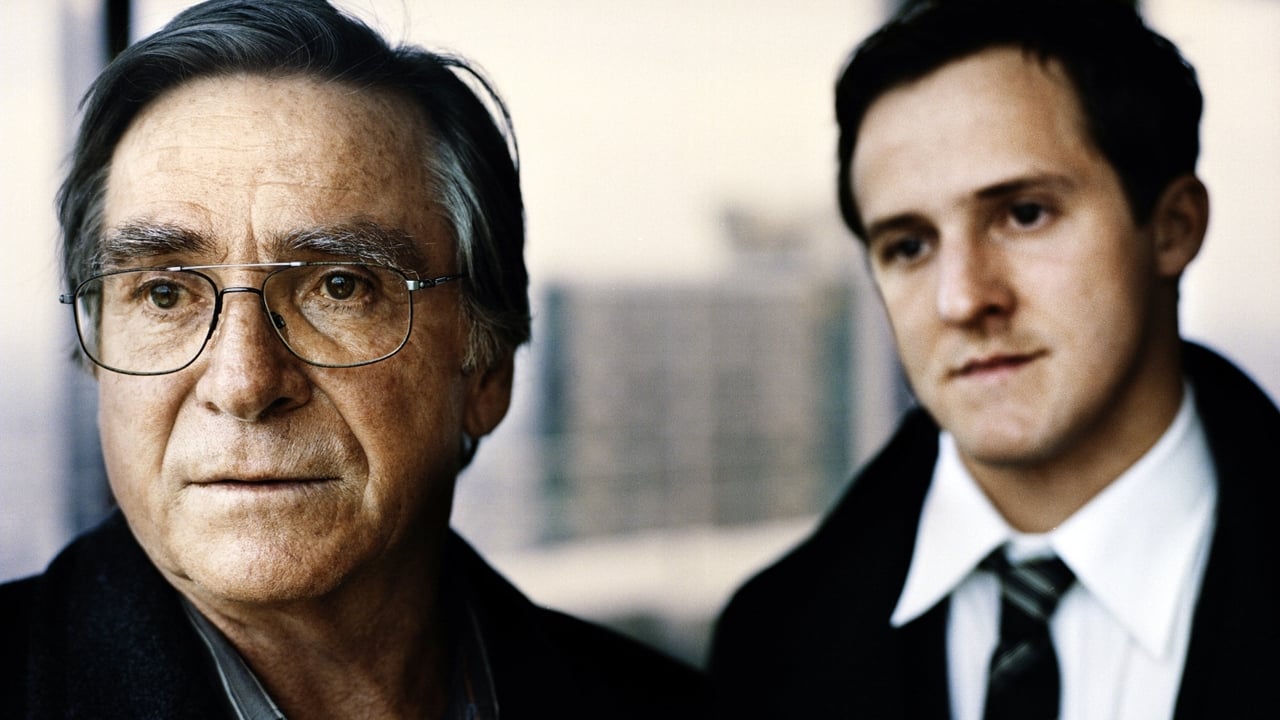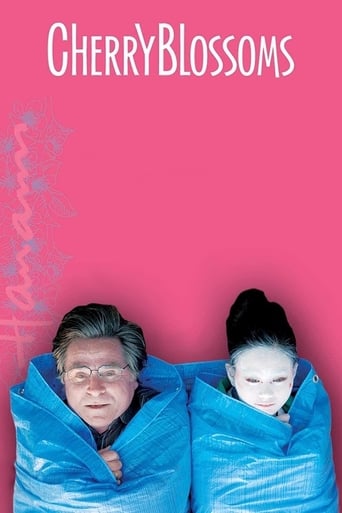Nessieldwi
Very interesting film. Was caught on the premise when seeing the trailer but unsure as to what the outcome would be for the showing. As it turns out, it was a very good film.
Billie Morin
This movie feels like it was made purely to piss off people who want good shows
Bob
This is one of the best movies I’ve seen in a very long time. You have to go and see this on the big screen.
Haven Kaycee
It is encouraging that the film ends so strongly.Otherwise, it wouldn't have been a particularly memorable film
Andres-Camara
After seeing it you feel that you have already seen it many times and soon you will have forgotten.Spoiler: I never understood why good cinema has to be slow. I do not know why to make a good movie you have to make it slow. This is a good movie or rather, it is a good script, which for my taste is poorly performed. I understand cinema as the sum of a few facets and in this case, the only one I like is the script. If we go to the other facets, apart from the direction of actors, none is good. A fundamental part of a good movie is to make it enjoyable, here fails, the photo, needless to say. Lately it is fashionable to put all the light through the windows and not see the outside, where I have to tell a story with the photo. If we see the makeup and hairdressing as normal, which is not bad, at least not bad. But I think that after seeing it you feel that you have seen it many times and soon you will have forgotten. One thing to be thankful for, at least it's not the typical movie with one shot per second. Although do not worry about telling the story with the camera, which is also lost. Yes I like the symbolic touches it has as the death of the woman watching as death comes to get you
Roland E. Zwick
When her husband is diagnosed with a terminal illness, a German woman named Trudi decides it's time the both of them paid a long overdue visit to their adult children - two of whom live in Berlin and one in Japan. The catch is that the husband, Rudi, doesn't even know he's sick and neither do the kids. Thus, Trudi must live with this horrible secret while putting on a brave face for those around her. But then a different, wholly unforeseen tragedy strikes the family and the movie heads off into an entirely new and utterly unanticipated direction from where we thought it was going.A German movie set largely in Japan, "Cherry Blossoms" is a beautiful and heartbreaking film about living for the moment and of not putting off till tomorrow what you can do today. It's also marvelously perceptive about the dynamics of parent/child relationships, especially when, as is true in this case, the parents are viewed by their self-absorbed offspring more as burdens to be endured than blessings to be cherished. The irony is that Rudi and Trudi have more in common with - and indeed are treated better by - many of the strangers and casual acquaintances they come in contact with than they are by their own children.But the movie is also an examination of marriage and of how partners can become so entwined with one another as a couple that they lose their identities as individuals, missing out on the dreams and goals they had for their lives when they were still young and unattached. This is certainly the case for Trudi, who has harbored a lifelong desire to take up Japanese dancing, a desire that Rudi, in his selfish indifference, has pretty much squelched in her for the duration of their marriage. Such a realization of lost opportunities can lead to regrets, recriminations and despair at the end of the road, yet in the case of Rudi and Trudi, one learns that lesson a little too late - and the other just in the nick of time.Elmer Wepper and Hannelore Elsner are magnificent as the aged couple, superbly capturing the deep-seated but often unspoken love that each spouse has for the other. A fine supporting cast, led by Maximilian Bruckner as one of their sons and Aya Irizuki as a young street artist who befriends Rudi in his time of greatest need, adds to the movie's richness. Another crucial element in the emotional force of the movie is the richly elegiac score by Claus Bantzer.The glory of this exquisitely realized and profoundly moving film is its willingness to grapple with some truly major issues - of life and death, of sorrow and loss, of filial and marital relationships - without getting heavy-handed and preachy about it in the process. Every moment in this film feels real and unforced, yet the movie itself has the minutely worked-out grace and precision of Japanese performance art (which we see quite a bit of throughout the course of the film). In fact, near the end, there is a fantasy dance sequence that is, quite frankly, one of the most utterly spellbinding scenes I've come across in ages.Masterfully directed by Doris Dorrie, "Cherry Blossoms" is a lyrical and unforgettable work that takes its place among the truly outstanding films of recent times.
druid333-2
Doris Dorrie,in the past ten (or so)years has matured into a fine film maker & story teller. She first gained fame in the United States with her breezy comedy, 'Men'. After falling on her face with her first English language outing, 'Me & Him', she re-pooled her talents & moved on to write & direct (and sometimes produce)some mighty fine film fare. In the past ten years, she has added a realm of eastern philosophy in her work. 'Cherry Blossoms'(or as it is being marketed in Europe as 'Kirschbluten-Hanami')is a meditation on old age and redemption. An elderly couple visit their adult children in Berlin,only to find that they're strangers in their eyes. The wife, Trudi has always wanted to travel to Japan to see Mt.Fuji & study Butoh dancing (basically,Japan's answer to the mime). Rudi (her husband) couldn't be bothered. When Trudi dies unexpectedly, he is stricken with guilt that he should not have been such a selfish bastard to his wife,and decides to travel to Japan to make amends to Trudi's kindred spirit. While in Japan,Rudi strikes up a friendship with a homeless Butoh performance artist living in a park. What follows is a true odyssey of the soul. This is a beautifully written,directed and played out drama that will touch your heart & perhaps even cause one to re-think of the relationship with one's own parents. Spoken in German & Japanese with English subtitles. Not rated by the MPAA,this film serves up a bit of rough language & some full frontal female nudity during a bath house sequence. Not a good choice for very young eyes.
janos451
Doris Dörrie's "Cherry Blossoms" - opening "Berlin and Beyond" Thursday, in U.S. release on Friday - has two original titles, one in German: "Kirschblüten," which means cherry blossoms, and another in Japanese: "Hanami," which doesn't.The Japanese equivalent to the English and German titles would be "sakura"; "hanami" is a national ceremony/celebration/holiday of WATCHING the blossoms open. Dating back to the 8th century, hanami is an event without parallel outside Japan.The difference between the titles is a subtle, but meaningful message. Just as the blossoms in themselves are different from the veritable cult surrounding them in Japan, Dörrie's characters live in two different worlds, acting differently, first clashing (similarly to "Lost in Translation") and then - somewhat mysteriously - cohere. With this complex, effective, and moving story, Dörrie, who has spent more than three decades writing and directing "interesting and different" films of varying quality, has reached a pinnacle of her career. (She owes a debt of gratitude to Yasujiro Ozu, especially his "Tokyo Story.")"Germans and Japanese," Dörrie has said, "are really very much alike — incredibly repressed and very irrational at the same time." This vague and rather ridiculous generalization actually seems to come to life in "Cherry Blossoms." One of Germany's best-known TV stars, Elmar Wepper, appears in his first movie role, and he nails the character of Rudi Angermeier, a cartoonishly ordinary man on an extraordinary journey. Unknown to him, he is near the end of his life, as he slowly, believably emerges from a stolid German middle-class life of unvariable routine to traverse distance and radically different cultures, all the way to Mount Fuji, dancing butoh.There are two remarkable co-stars along Rudi's adventure: his wife, Trudi, played by the glamorous actress Hannelore Elsner, appearing heroically unglamorous here to fit the role of a plain housefrau; and Aya Irizuki as Yu.Yu is one of those rare cinematic creations, a character you may not understand, but one who will stay with you. This waif, runaway, street artist is as bizarre a representative of Japan as - going back to "Lost in Translation" again - Bill Murray's Premium Fantasy woman ("Rip my stockings!") and yet she also evokes Giulietta Masina's character in "La Strada," a couple of continents away.Watching Rudi and Yu under the cherry blossoms, with the strangely elusive Mount Fuji in the background finally peeking out from behind the clouds, is among the more memorable scenes in contemporary cinema.

